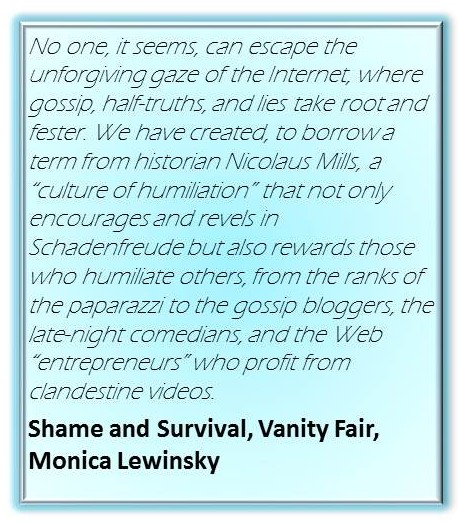I was contacted recently by a woman who was concerned for her friend and wanted some urgent advice. “I have been listening to a friend’s beautiful love story unfolding, and then realised where it was heading”, she said. She had seen the same pattern previously herself but had pulled out. She had found my blog and got in touch. She acknowledged that “Although we are both intelligent women our need to be loved, and love, is stronger than reason, as you know”. Yes, I know this only too well and at a high cost.
I had already been thinking about this question, and had even drafted a book outline on the topic. I had been warned by friends, but disregarded the warnings, and have ‘kicked myself’ since. So here are a few pointers to help, from the perspective of being a friend. (Remember that men can also be scammed by women, its not allways this way around.)
Understand how scams/scammers work
It important that you understand how scammers work so you can understand what is happening to your friend.
- The scammer has gathered information on your friend, and knows their weak points, and how much they want to be loved. They will have no qualms about using this against your friend to their monetary advantage.
 The scammer will profess love quickly and deeply, making it seemed destined, special, magical, and its natural for anyone wanting love to respond to this. Though the text of emails, messages, chats are tried and tested pro-forma materials, they will seem genuine, personal and include promises of forever love. Your friend may at this stage be sharing with you the excitement of finally found their one true love.
The scammer will profess love quickly and deeply, making it seemed destined, special, magical, and its natural for anyone wanting love to respond to this. Though the text of emails, messages, chats are tried and tested pro-forma materials, they will seem genuine, personal and include promises of forever love. Your friend may at this stage be sharing with you the excitement of finally found their one true love.- When ‘in love’, the hormone oxytocin is engaged, and this heightens trust, so the friend will be more trusting of the scammer than they might otherwise be. This means that they will be more likely to not focus on the inconsistencies in the experience, passing them by.
- They will be communicating at all hours, especially through the night, keeping your friend sleep deprived. This makes it more difficult for your friend to make rational decisions when the scammer eventually asks for money. The scammer may also provide legitimate looking documents as evidence of their credibility or financial capacity to repay money.
- When confronted about being a scammer, the scammer will respond with righteous anger, feigning affront, and will encourage the friend to cut off from others, especially those with warnings.
 The scammer will say that “what we have is special” and “they would not understand so don’t bother trying to explain – they will understand when they see us together – don’t talk to them”. They will not ever intend to be together, but they will profess and promise otherwise. The scammer will encourage your friend to cut off from you and other friends or family. This may mean they will try and push you away or cut off from you.
The scammer will say that “what we have is special” and “they would not understand so don’t bother trying to explain – they will understand when they see us together – don’t talk to them”. They will not ever intend to be together, but they will profess and promise otherwise. The scammer will encourage your friend to cut off from you and other friends or family. This may mean they will try and push you away or cut off from you. - A high level of intimacy will be developed, including possible connections to others in the scammer’s imaginary family, including children. This adds an element of normality and family intimacy which counters the sense that it might be a scam.
- They ask for honesty and make lots of promises (but will never return them).
As a friend of someone being targeted for a scam
- Keep close contact with your friend and resist being pushed away. Encourage them to keep sharing with you. You may want to just cry out “Stop it” but this might push them away from you and its important to keep the communication open.
- Be respectful of what your friend is feeling, however try to keep them open the equal possibility that it is a scam.
 If you can, get actual emails and photos of the scammer. Use these to do some checking using some of the sites such as romancescam.com, and scamsurvivors.com to check for previously stolen photos and search for stand-out segments of text. As the same ones are used frequently, you may find them already reported, giving you information to take to your friend as evidence of a suspected scam. Also do a Google image search on the photo: you are looking for the photo being connected to other names than the one used by the scammer. Make sure you check on all results pages, and check for any google messages saying there is more to be seen, checking these results as well. If you have the technical ability you can check the IP address in the email header as well to see if it is coming from the same location as the scammer.
If you can, get actual emails and photos of the scammer. Use these to do some checking using some of the sites such as romancescam.com, and scamsurvivors.com to check for previously stolen photos and search for stand-out segments of text. As the same ones are used frequently, you may find them already reported, giving you information to take to your friend as evidence of a suspected scam. Also do a Google image search on the photo: you are looking for the photo being connected to other names than the one used by the scammer. Make sure you check on all results pages, and check for any google messages saying there is more to be seen, checking these results as well. If you have the technical ability you can check the IP address in the email header as well to see if it is coming from the same location as the scammer.- If you do find evidence that it may be a scam, present it as another possibility, not “the truth”, and encourage your friend to look further for themselves. Be careful not to make them wrong or unworthy of love. When this happened to me I became rebellious, insisting that I deserved to be loved, and it pushed me further towards the scammer.
-

Scams of the Heart Blog link Here are some what not to say and why tips from by Soraya Grant in her Scams of the Heart blog. This blog is excellent, and well worth a read in more detail.
- The person who contacted me made a great point about the need for a friend to match the time and energy level of the scammer, and identified the “need to apply just as much bombardment of information and support, even when it feels like intruding”. She specifically judged when her friend could take in and be receptive to certain pieces of information. It takes a great friend to do this – I commend her on her efforts.
- If you are not sure what to do, reach out, to me or some of the other sites offering support resources. There is help out there. See my Support for Victims of Scams page.
- If your friend does part with money, and then realises they have been scammed, encourage them to report it. See my blog on this.
Luckily in this instance we can report a good outcome. Contact was broken off with the scammer, and life has moved on.
One last thing.. be wary about secondary scams. Once they are in contact they may try again. This includes, for example, scammers pretending to be police or Interpol, saying they have your money, or your scammer, including providing forged documents about this. Don’t be tempted to go there, its another scam. More on this in my next blog.




